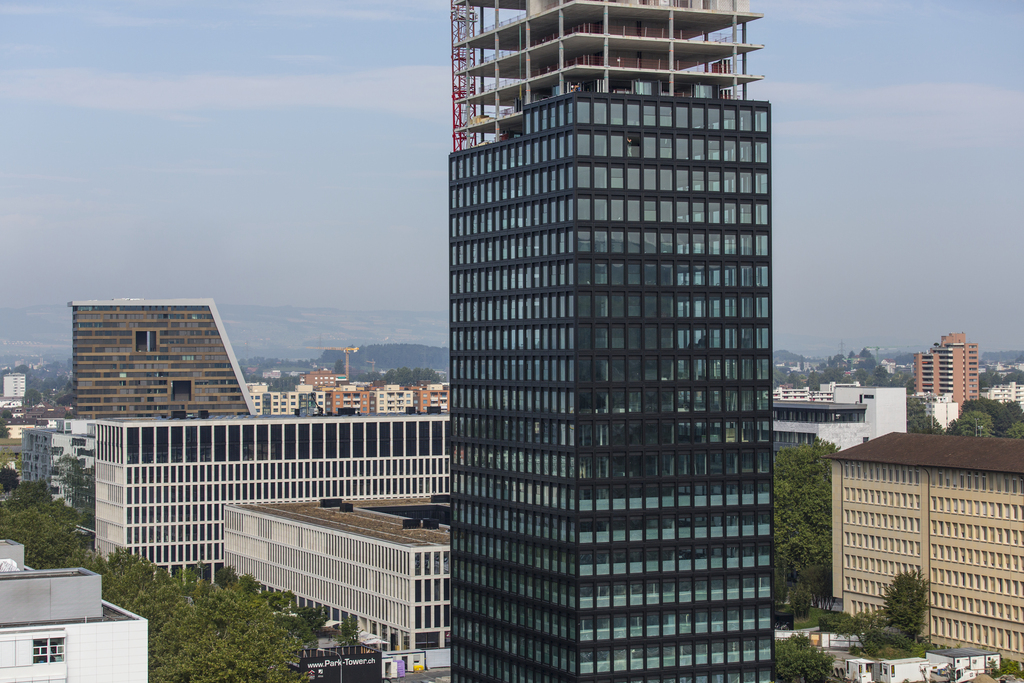
Switzerland risks losing foreign firm appeal

For decades, Switzerland’s attraction to multinational firms has proved a vital source of economic success. But a domestic and foreign backlash against the generous Swiss welcome laid out for corporate HQs threatens to derail the “industry”.
“Competitors are very aggressive in attracting companies into their space with favourable tax systems, welcome gifts and subsidised locations,” Rudolf Wehrli, president of the Swiss Business Federation (economiesuisse) told swissinfo.ch.
“Our excellent framework conditions could evaporate in comparison to other advantages being offered to investors.”
By far the biggest obstacle to Switzerland retaining its appeal for foreign companies is the impending revision of its corporate tax code, forced by the European Union. The EU demands that cantons remove “discriminatory” tax breaks on the overseas earnings of foreign firms and apply the same rate as domestic profits.
Alarmed at the slackening pace of multinationals setting up operations in Switzerland, economiesuisse set about tackling the subject head-on at its annual gathering in August. The Lausanne event laid out a sobering reality check.
Top of the worry hit list are the looming changes to Switzerland’s cantonal-led corporate tax regime. Despite resigning itself to the inevitability of imposing reforms to beat off EU discrimination claims, the government has yet to decide on how to adjust the tax system.
More than 6,500 foreign corporations run operations in Switzerland, often in the form of regional HQs, research and development hubs or other back office operations.
According to economiesuisse, multinationals (MNCs) employ 430,000 people in Switzerland (11% of all jobs), have accounted for two thirds of economic growth in the last decade and have contributed an accumulated CHF650 billion in investments in the country.
The significance of MNCs varies from canton to canton, with the likes of Zug, Geneva and Vaud attracting a larger proportion than other cantons.
The Swiss-American Chamber of Commerce calculated that MNCs accounted for 43% of economic output in Geneva in 2010 and 41% in Vaud.
In both cantons, MNCs generated two thirds of new jobs in the decade 2000 to 2010.
The Association of Swiss Cities warned in August that Swiss towns and municipalities could lose CHF1.5 billion in revenues annually if tax breaks for foreign firms were dropped and the general corporate tax rates lowered.
Beware of competitors
But Switzerland is demanding that the EU withdraws threats to impose retaliatory measures such as punitive trade tariffs on Swiss goods before it begins negotiations on revising its corporate tax system.
On December 19, a set of proposals to reform corporate tax was sent to the cantons for approval. These included the idea of lowering levies on profits stemming from intellectual property, such as patents, brands and licenses.
The delay in coming up with final counter proposals for Switzerland’s current tax system is unappealing for foreign firms that crave long-term certainty. Wehrli fears that rival countries could take advantage of the decision making black hole to snatch multinationals, and their tax receipts, from Switzerland.
“The competitiveness of a country is not a given to start with, and once achieved it is not going to last if left alone,” he told swissinfo.ch, pointing out Switzerland’s rising wages and office rental prices in comparison to other countries.

More
Irish sense advantage in foreign firm drive
Welcome receding
Many of Switzerland’s attractions as a business location remain intact: high grade transport, educational and research facilities; a highly skilled, multilingual workforce; a central European location and one of the world’s most solid economies backed by a sophisticated financial system.
But the welcome mat is starting to look a little soiled as the tone of public sentiment towards foreign corporate giants turns negative.
Stung into protest by congested highways, crowded trains and house prices rising to unsustainable levels, more and more people appear willing to point the finger of blame at multinational corporate giants and their international workforce.
The most concrete evidence of ill-feeling towards foreign capitalism can be felt in the barometer of Swiss public sentiment – initiatives and referendums.
Earlier this year voters approved the “Minder” initiative to put curbs on executive pay. Another initiative that would have restricted boardroom bucks even further – to no more than 12 times the lowest salary earned in any company – was thrown out at the ballot box on November 24.
An annual survey of foreign firms in Switzerland by Ernst & Young has revealed numbers of new entrants or significant re-investments has slowed from 124 cases in 2007 to just 61 last year.
The number of new jobs created by foreign investment in Switzerland last year fell 40%, an intra-cantonal finance body told the Neue Zürcher Zeitung newspaper in September.
Furthermore, the number of foreign-owned banks physically operating in Switzerland fell from 145 at the start of 2012 to 129 by the end of May this year.
Lingering hangover
In addition, separate initiatives slated for the next two years threaten to tighten inheritance tax rules and crack down on the number of foreigners that are allowed to live and work in Switzerland.
Bashing foreign firms and wealthy individuals is also proving just the tonic for a lingering hangover left by the financial crash. Some cantons have scrapped or curbed special tax breaks for rich people making Switzerland their home, forcing the government to also clamp down on the practice nationwide.
“Everywhere I go I keep getting asked by multinational companies if Switzerland is still business friendly, because they don’t feel well liked at the moment,” Martin Naville, chief executive of the Swiss-American chamber of commerce told swissinfo.ch.
“We are not seeing a big exodus of foreign companies, but the risks that Switzerland faces in the next two to three years are enormous. We are faced with a lot of important questions and they have to be taken seriously.”
“The lights are not flashing red for multinationals just yet, but they are certainly flashing amber.”

In compliance with the JTI standards
More: SWI swissinfo.ch certified by the Journalism Trust Initiative





























You can find an overview of ongoing debates with our journalists here . Please join us!
If you want to start a conversation about a topic raised in this article or want to report factual errors, email us at english@swissinfo.ch.